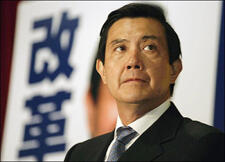In this article written for Foreign Affairs.com, Daniel Lynch points out that the Taiwan election was not about cross-strait relations but socio-economic issues. Lynch evidences this claim by stating the two issues are inseparable. People in Taiwan realize that a good relation with China is essential for their country's future economic prosperity.
Lynch's Article Begins:
In presidential elections this weekend, Ma Ying-jeou, Taiwan's incumbent president from the ruling Kuomintang (KMT), or Nationalist Party, decisively defeated Tsai Ing-wen of the Democratic Progressive Party (DPP). With about 52 percent of the vote (compared to Tsai's 45.6 percent and the third-party candidate James Soong's 2.8 percent), Ma will be able to govern with a clear majority of popular support. His margin of victory was far higher than most opinion polls had predicted. Many Soong supporters seem to have decided in recent days that by voting for their preferred candidate, who is almost politically identical to Ma, they might hand Tsai the victory.
During the campaign, most observers insisted that the election was not about cross-strait relations but about socio-economic issues, including rapid economic growth amid worsening inequality, reduced career opportunities for recent college graduates, and unaffordable housing costs. In fact, socio-economic issues are inseparable from cross-strait issues. Ma ran on his record of improving ties between China and Taiwan, claiming that friendship meant stability and prosperity and that a reversion to DPP rule would throw Taiwan back into the dark days of the mid-2000s, when DPP President Chen Shui-bian's avowedly Taiwan-centric policies blocked negotiations even on direct passenger plane flights across the Taiwan Strait. Tsai, no protectionist or isolationist herself, promised not to roll back cooperation with China for the same reason. Her main criticism of Ma was that he is naive about China. According to her, issues of further integration -- such as allowing Chinese professionals and white-collar workers to take jobs in Taiwan -- should be approached cautiously.




